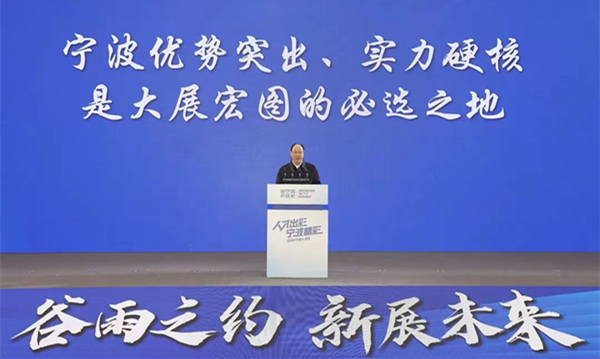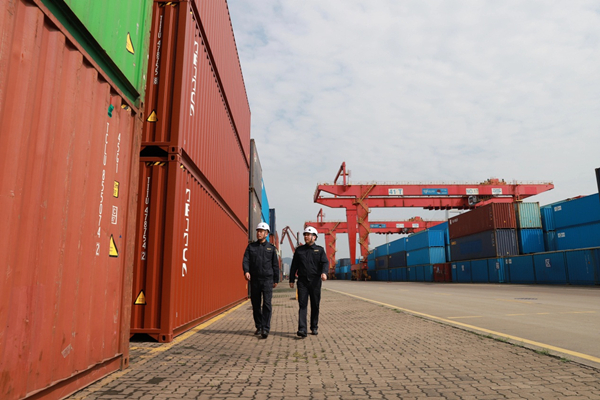Exhibition highlights Hemudu culture
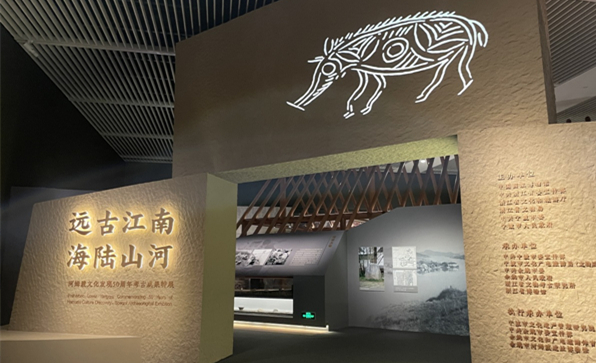
An exhibition featuring artifacts from Hemudu sites is held at the National Museum of China in Beijing. [Photo/Ningbo Daily]
An archaeological exhibition celebrating the 50th anniversary of the discovery of Hemudu culture in Ningbo, Zhejiang province, opened at the National Museum of China in Beijing on Nov 7.
In 1973, villagers in Hemudu town in Yuyao, a county-level city in Ningbo, accidentally discovered prehistoric ruins dating back 7,000 years while working on a drainage project.
The relics unearthed at the site, including remains of rice kernels, ceramic fragments with carbonized rice and husks, wooden joints and pottery vessels, provided evidence of a flourishing Neolithic culture and also affirmed the Yangtze River Basin, like the Yellow River Basin, as a cradle of Chinese civilization.
"Hemudu culture is an integral part of Chinese civilization. Its discovery not only filled gaps in Neolithic archaeology in the lower reaches of the Yangtze River but also provided vital material for studying the origins of Chinese civilization," said Guan Qiang, deputy director of the National Cultural Heritage Administration, when addressing the opening ceremony of the exhibition.
This year marks the 50th anniversary of the discovery of Hemudu Culture. The exhibition, featuring 324 artifacts from Ningbo's Hemudu, Tianluoshan, Tashan, and Jingtoushan sites, presents the whole discovery process of Hemudu culture, from excavation and exploration to conservation.
The exhibition is divided into three parts. The first part provides an overview of the origin of the name "Hemudu" and significant milestones in its excavation and preservation. The second part offers a comprehensive portrayal of Hemudu people's lives through artifacts like pottery, stones, bones, antlers, ivory and wooden tools. The last part highlights recent findings at the Jingtoushan site, whose discovery further advanced the history of Hemudu culture by more than 1,000 years.
The exhibition is open to the public from Nov 8 and will run for three months.

 China's 30-year internet odyssey
China's 30-year internet odyssey 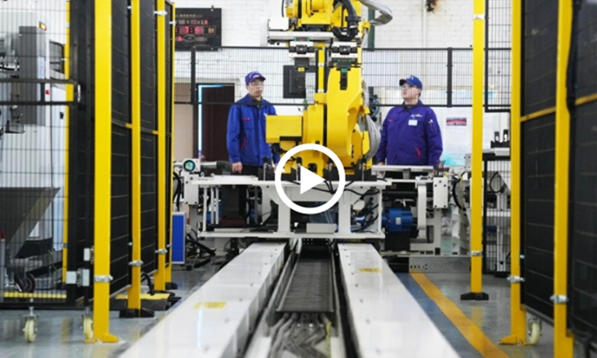 A look at China's economic data in Q1 of 2024
A look at China's economic data in Q1 of 2024 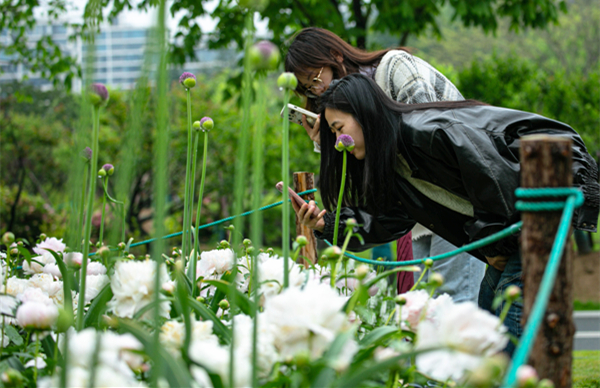 Peony spectacle at Ningbo Botanical Garden Pe
Peony spectacle at Ningbo Botanical Garden Pe 
